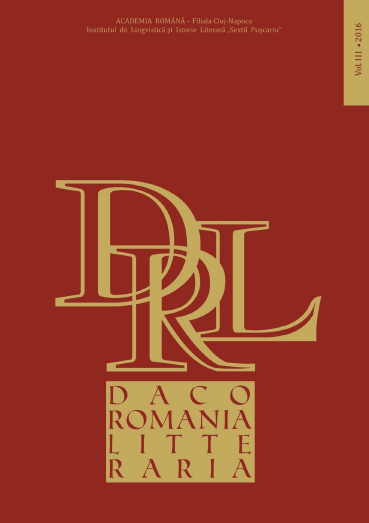COMMUNITY AS COMMONING, (DIS)PLACING, AND (TRANS)VERSING
COMMUNITY AS COMMONING, (DIS)PLACING, AND (TRANS)VERSING
FROM PARTICIPATORY AND ‘STRIKE ART’ TO THE POSTDIGITAL
Author(s): Chris TanasescuSubject(s): Language and Literature Studies, Studies of Literature, Theory of Literature
Published by: Academia Română, Filiala Cluj-Napoca
Summary/Abstract: The article examines the concept of contemporary community as commoning, at the intersection of action, performance or participatory art, place, site-specific, and (post)digital poetry. This involves a brief review of traditional avant-gardes, 20th century engaged art, and recent political-art movements. In the process of this analysis, the participatory emerges as a subtler, more nuanced, and less predictable phenomenon than usually accepted. Also, performative subjectivity is traced as either the source of anticommunal community (in French theory), or mere Christian-capitalist construct (in communist philosophy). Agamben’s theory of the coming community is therefore examined as possible response to both these stances, with its relevance to contemporary movements, including post-Occupy. Commoning – paralleled to placing in poetry – turns out to be of critical importance in present-day community especially with correlatives such as displacement and undecidablility. Place, space, and map(ping) are therefore radically redefined in the context, and contemporary poetry appears to be indissolubly related to the process: the poem of place is the place, and poetry becomes the site of the com(mon)ing community. Site (and discourse)-specificity in poetry occasions a shift in focus to digital space, its sonic economy, and the communities and floating locations/ sites thereof. Site and discourse fluidity have brought about a paradigm in which the poem and its related apps tend to expand and turn into digital space itself, while in more recent postdigital evolutions, a new political concern for the ‘real’ reshape community, site, and performance/ participatory art or poetry in a continuous interactivity and interdependence.
Journal: Dacoromania litteraria
- Issue Year: 3/2016
- Issue No: 1
- Page Range: 10-44
- Page Count: 35
- Language: English

